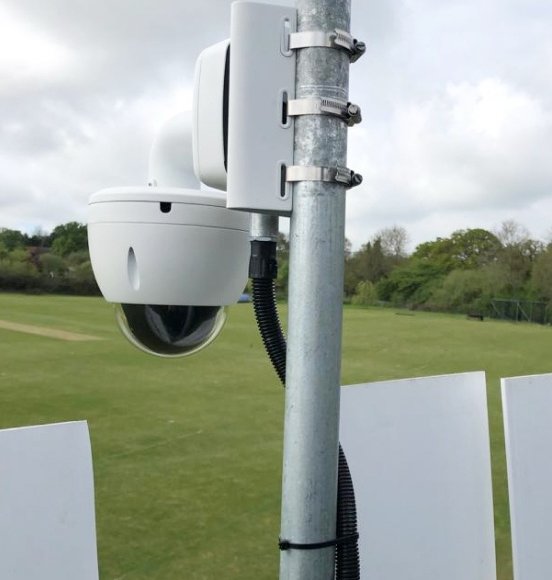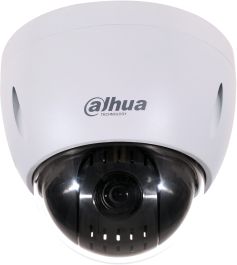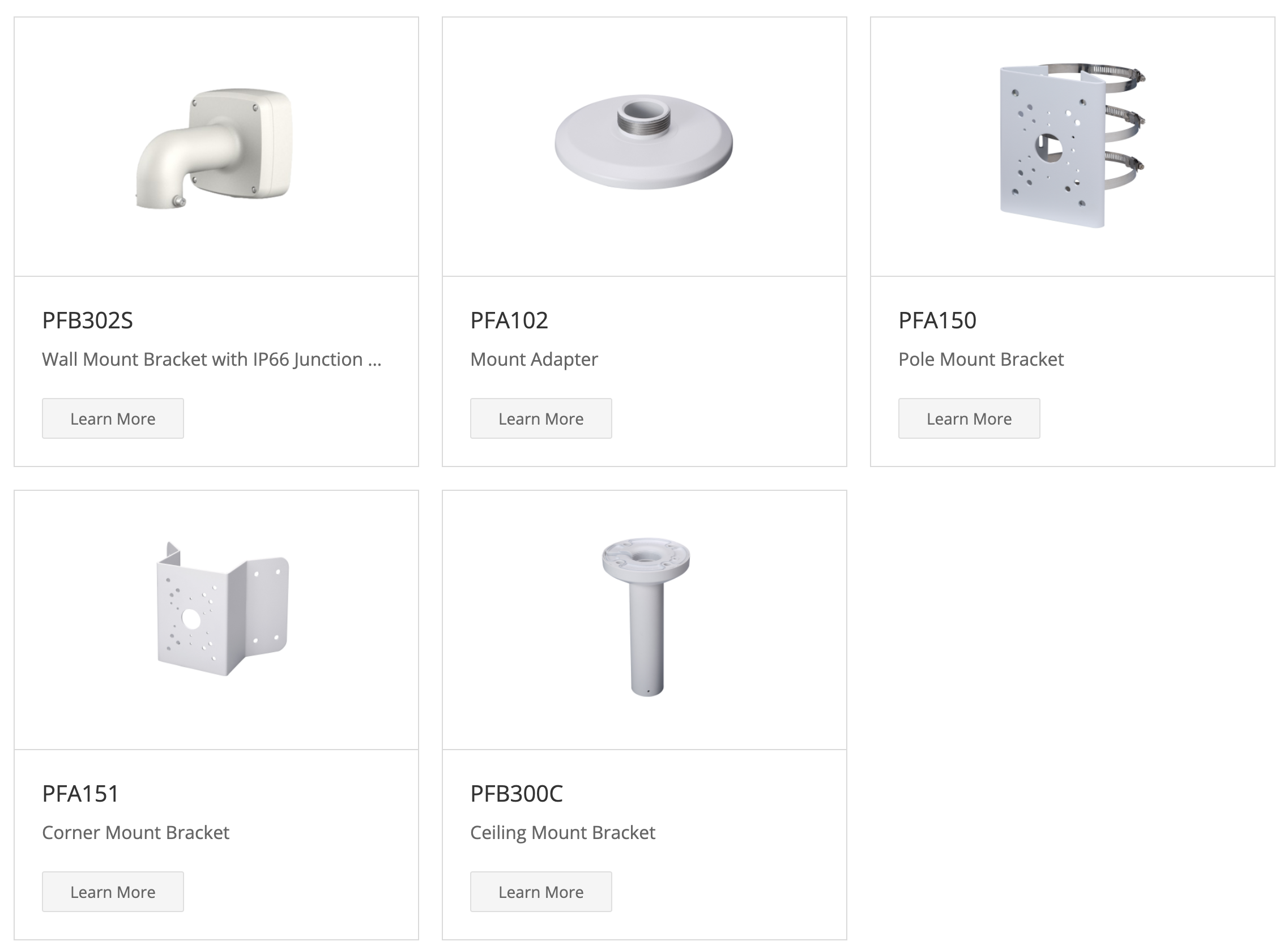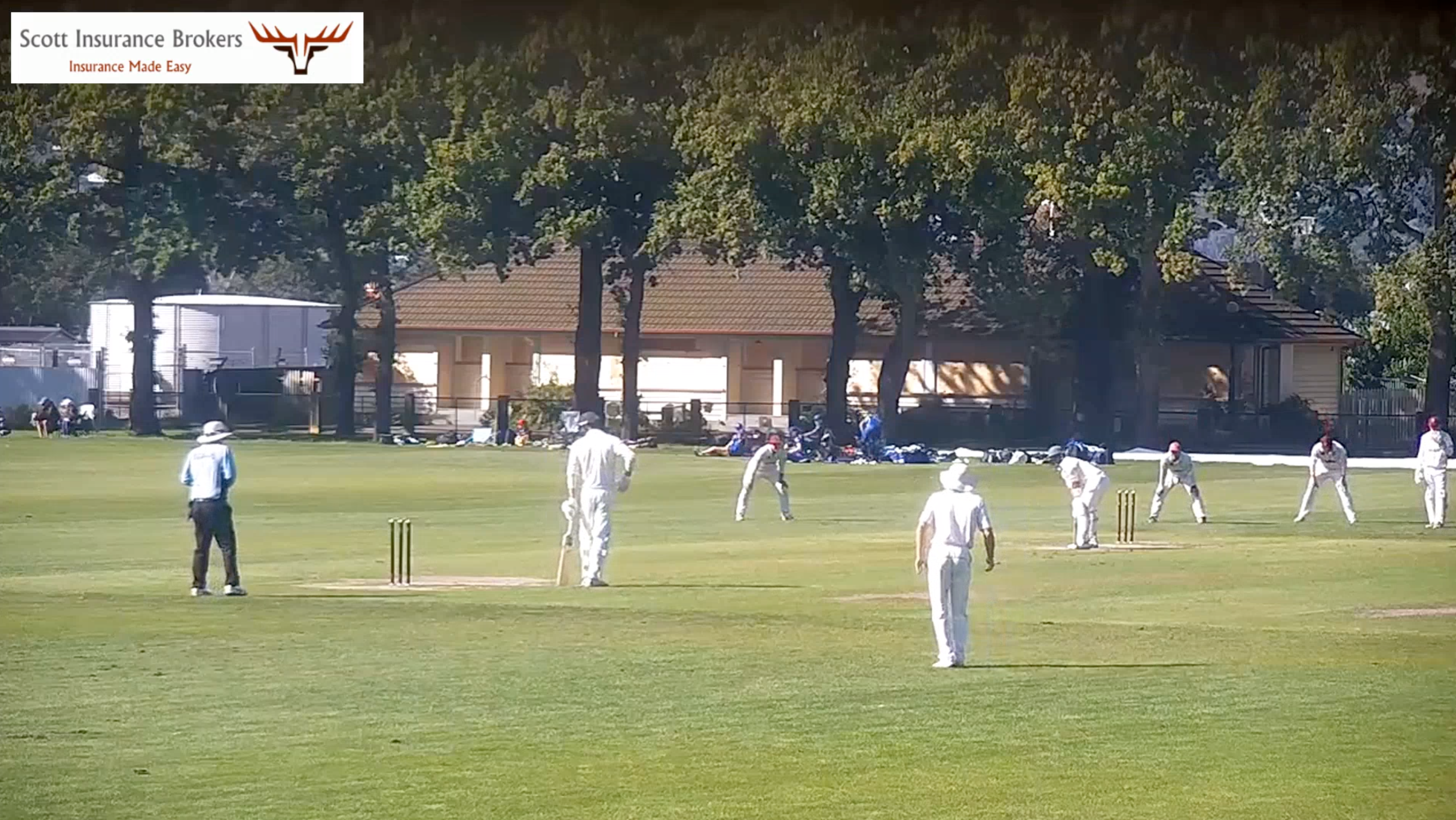Internet connected, point-tilt-zoom (PTZ), and CCTV (Closed-Circuit Television) cameras provide a (usually) permanent solution, bypassing the anxiety of battery charge - as well as reduce the stress of providing a reliable internet connection to the camera as they can often plug directly into your internet setup. They're also handy for doubling up as a security system after-hours!
The MAS predecessor, My Action Replay provided fixed hardware installations for sports clubs - often used for cricket/baseball and other sports where the camera doesn't need to pan (often).
MAS doesn't provide tailored hardware/specific recommendations around this any longer, but a local installer/provider can do an installation for you and direct the output of the camera to become a fixed camera inside MAS.
If you are an existing MAR customer with a functioning installation, we can help migrate you and these cameras into the MAS ecosystem.
Advantages
Here are some things to keep in mind when considering using/purchasing an IP camera for MAS:
-
Wide coverage: CCTV cameras are designed to cover large areas, making them suitable for capturing wide shots of sports venues. They can provide a comprehensive view of the entire field or arena, allowing viewers to observe the overall game dynamics and player movements.
-
High-resolution footage: Many CCTV cameras offer high-resolution video capabilities, allowing you to capture sports events in crisp detail. This ensures that viewers can see the action clearly, even from a distance, and enhances the overall viewing experience.
-
Advanced zoom capabilities: Some CCTV cameras are equipped with powerful zoom lenses, enabling you to capture close-up shots of players, specific game moments, or distant areas of the venue. This versatility in zooming allows for more dynamic coverage and adds an extra level of detail to the livestream.
-
Robust and weatherproof design: CCTV cameras are often built to withstand harsh environmental conditions. They are typically weatherproof and durable, making them suitable for outdoor sports events, regardless of the weather conditions. This ensures that the camera can operate reliably throughout the event.
-
Enhanced security features: Since CCTV cameras are primarily designed for security purposes, they often come with advanced features such as motion detection, night vision, and facial recognition. These features can be advantageous for sports livestreaming as they help in capturing important moments, identifying players, and ensuring the security of the venue.
-
Scalability and multi-camera setups: CCTV systems can be easily scaled up to accommodate multiple cameras. This allows you to set up various cameras at different angles and locations within the venue, providing diverse perspectives for your livestream. Multi-camera setups offer more flexibility in capturing different aspects of the game and delivering a more engaging viewing experience.
-
Real-time monitoring and control: CCTV systems often include a monitoring station or control center where operators can view the live footage and make adjustments as needed. This feature enables you to monitor the livestream in real-time, ensuring that the camera angles, zoom levels, and overall quality of the stream are optimised.
Disadvantages
However, it is also worth considering some of the following and if this may apply to your setup:
-
Limited mobility: CCTV cameras are typically installed in fixed positions, which limits their ability to capture dynamic shots or follow fast-paced sports action effectively. They may not offer the same level of mobility and flexibility as handheld or remote-controlled cameras, which can limit the variety of camera angles and perspectives available during the livestream.
-
Lack of built-in audio: Most CCTV cameras prioritise video surveillance rather than audio capture. As a result, they often lack built-in microphones or audio capabilities. If capturing high-quality audio is important for your sports livestream, you will need to invest in separate audio equipment or rely on other audio sources.
-
Complex installation, setup, and ongoing support: CCTV camera systems generally require professional installation due to their complexity. They involve running cables, mounting cameras, and setting up the control center or recording equipment. This setup process can be time-consuming and may require technical expertise, which could result in additional costs, and any major changes to your network setup may knock them offline, making it very difficult for MAS to provide useful support.
-
Limited zoom control during live streaming: While some CCTV cameras offer powerful zoom capabilities, controlling and adjusting the zoom level during a live stream can be challenging. It may require specialised equipment or dedicated operators to adjust the zoom in real-time. This can limit your ability to capture close-up shots or adjust the framing of the stream as the game progresses. Features like PTZ are handy but often slow and clumsy.
-
High front-up cost: CCTV camera systems can be more expensive compared to other livestreaming setups, especially when considering the cost of multiple cameras, recording equipment, cables, and installation. The initial investment and ongoing maintenance costs should be taken into account when considering a CCTV camera setup for sports livestreaming.
-
Reliance on wired connections: Many CCTV camera systems rely on wired connections for power and data transmission. This can limit the flexibility of camera placement and may require additional infrastructure or cabling for longer distances.
Recommendations
MAR used to provide/recommend a Dahua DH-SD42212T-HN CCTV camera. These are cheap, really easy to setup and fairly ubiquitous. A local installer and retailer will be able to help source and install one for you.
There are a wider variety of installation mounts available too - allowing for sturdy fixed installation in a variety of setups.
Ideally, the higher up you can get your camera, the better viewing angle for your audience (so consider "pole mounts" where possible).
The added benefit of these units is they can livestream via RTMP as a fixed device and have an excellent set of control room options for you to work the camera with. They are also powered by their ethernet cable, so you will only need to run one cable out to the camera from your internet router.
Note, they do not have audio onboard, and are very much a CCTV-camera first - picture quality can look quite "flat", especially when zoomed in.



